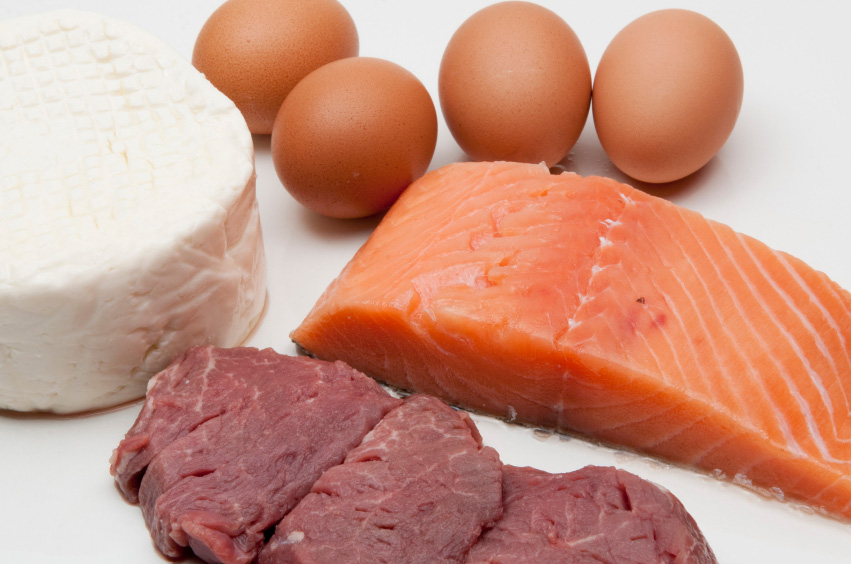 It is important to eat a varied diet for health, one that focuses on the food groups (and no - cookies and cake are not necessary foods). The first study looks at liver cancer risk and selenium - which is found in fish, shellfish, meat, milk, eggs, and certain South American nuts, such as Brazil nuts. The second article focuses on colorectal cancer and retinoic acid, a compound derived in the body from vitamin A. Vitamin A rich foods can provide you with retinoic acid, such as the lungs, kidneys, and liver of beef, lamb, pork. Also poultry giblets, eggs, cod liver oil, shrimp, fish, fortified milk, butter, cheddar cheese and Swiss cheese. Red and orange vegetables and fruits such as sweet potatoes, squash, carrots, pumpkins, cantaloupes, apricots, peaches and mangoes all contain significant amounts of beta-carotene, thus retinoids. Note that research generally has found health benefits from real foods, not from supplements.
It is important to eat a varied diet for health, one that focuses on the food groups (and no - cookies and cake are not necessary foods). The first study looks at liver cancer risk and selenium - which is found in fish, shellfish, meat, milk, eggs, and certain South American nuts, such as Brazil nuts. The second article focuses on colorectal cancer and retinoic acid, a compound derived in the body from vitamin A. Vitamin A rich foods can provide you with retinoic acid, such as the lungs, kidneys, and liver of beef, lamb, pork. Also poultry giblets, eggs, cod liver oil, shrimp, fish, fortified milk, butter, cheddar cheese and Swiss cheese. Red and orange vegetables and fruits such as sweet potatoes, squash, carrots, pumpkins, cantaloupes, apricots, peaches and mangoes all contain significant amounts of beta-carotene, thus retinoids. Note that research generally has found health benefits from real foods, not from supplements.
From Science Daily: Selenium status influence cancer risk
As a nutritional trace element, selenium forms an essential part of our diet. Researchers have been able to show that high blood selenium levels are associated with a decreased risk of developing liver cancer. Selenium (Se) is found in foods like fish, shellfish, meat, milk and eggs; certain South American nuts, such as Brazil nuts, are also good sources of selenium. It is a trace element that occurs naturally in soil and plants, and enters the bodies of humans and animals via the food they ingest. European soil has a rather low selenium concentration, in comparison with other areas of the world, especially in comparison to North America. Deficiencies of varying degrees of severity are common among the general population, and are the reason why German livestock receive selenium supplements in their feed.
While in Europe, neither a selenium-rich diet nor adequate selenium supplementation is associated with adverse effects, selenium deficiency is identified as a risk factor for a range of diseases. "We have been able to show that selenium deficiency is a major risk factor for liver cancer," says Prof. Dr. Lutz Schomburg of the Institute of Experimental Endocrinology, adding: "According to our data, the third of the population with lowest selenium status have a five- to ten-fold increased risk of developing hepatocellular carcinoma -- also known as liver cancer."....Previous studies had suggested a similar relationship between a person's selenium status and their risk of developing colon cancer, as well as their risk of developing autoimmune thyroid disease. (Original study)
From Science Daily: Retinoic acid suppresses colorectal cancer development, study finds
Retinoic acid, a compound derived in the body from vitamin A, plays a critical role in suppressing colorectal cancer in mice and humans, according to researchers at the Stanford University School of Medicine. Mice with the cancer have lower-than-normal levels of the metabolite in their gut, the researchers found. Furthermore, colorectal cancer patients whose intestinal tissues express high levels of a protein that degrades retinoic acid tend to fare more poorly than their peers.
"The intestine is constantly bombarded by foreign organisms," said Edgar Engleman, MD, professor of pathology and of medicine. "As a result, its immune system is very complex. There's a clear link in humans between inflammatory bowel disease, including ulcerative colitis, and the eventual development of colorectal cancer. Retinoic acid has been known for years to be involved in suppressing inflammation in the intestine. We wanted to connect the dots and learn whether and how retinoic acid levels directly affect cancer development."
"We found that bacteria, or molecules produced by bacteria, can cause a massive inflammatory reaction in the gut that directly affects retinoic acid metabolism," said Engleman. "Normally retinoic acid levels are regulated extremely tightly. This discovery could have important implications for the treatment of human colorectal cancer."
Further investigation showed that retinoic acid blocks or slows cancer development by activating a type of immune cell called a CD8 T cell. These T cells then kill off the cancer cells. In mice, lower levels of retinoic acid led to reduced numbers and activation of CD8 T cells in the intestinal tissue and increased the animals' tumor burden, the researchers found. "It's become very clear through many studies that chronic, smoldering inflammation is a very important risk factor for many types of cancer," said Engleman.
 A recent large study found that getting high levels of vitamin D from foods, but not supplements, is linked to a lower rate of a common skin cancer (squamous cell carcinoma) years later. Once again: the beneficial health effect is associated with eating real foods, but not supplements.
A recent large study found that getting high levels of vitamin D from foods, but not supplements, is linked to a lower rate of a common skin cancer (squamous cell carcinoma) years later. Once again: the beneficial health effect is associated with eating real foods, but not supplements.